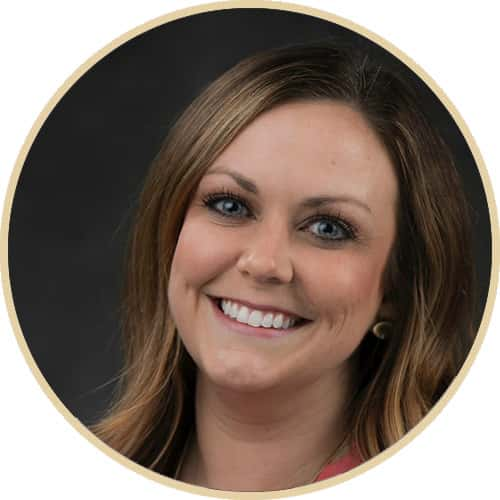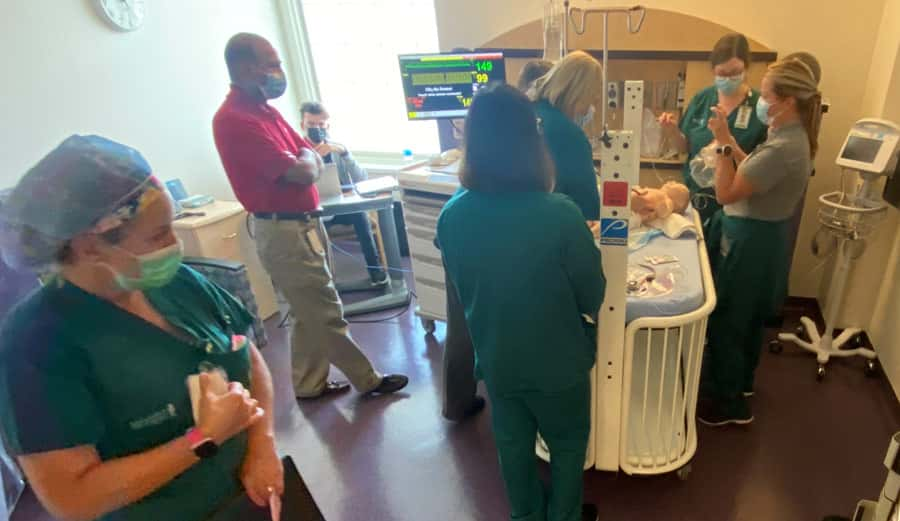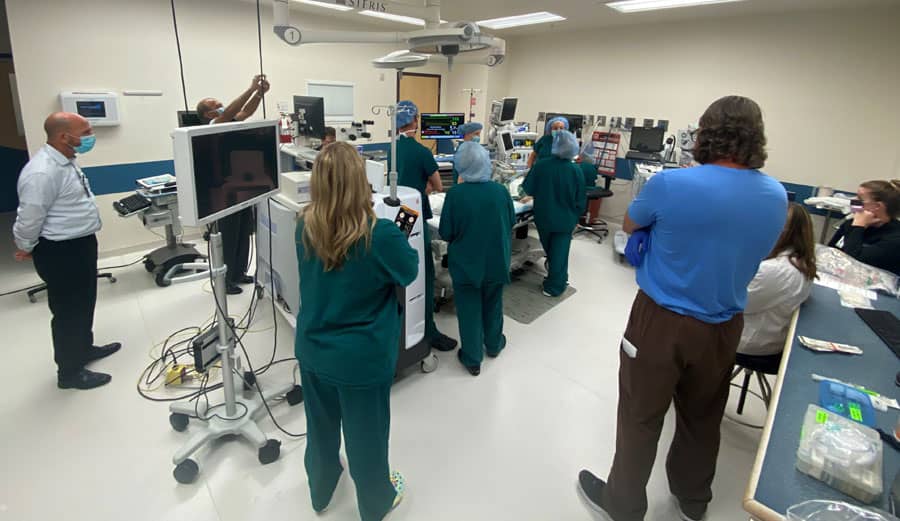Ensuring Preparedness Through a Managed Services Approach
Customer Story

Customer Story

Utilizing a Managed Services approach helped Boys Town National Research Hospital overcome barriers to meeting their simulation goals.
Boys Town National Research Hospital (BTNRH) in Boys Town, Nebraska is an internationally recognized leader in clinical and research programs. It includes pediatric inpatient facilities, including a Pediatric Intensive Care Unit (PICU), surgical services, and acute inpatient and residential treatment centers for children and adolescents with severe behavioral disorders.
The challenge
In 2019, a new Pediatric Intensive Care Unit (PICU) was established at BTNRH. Dr. Mohan Mysore, M.D., FAAP, FCCM, Medical Director of the PICU, and Karen Conboy, BSN, RN, CCRN, Director of the PICU, are among the members of the new team who were brought on board. Being familiar with the value of simulation in preparing providers to deliver optimal care, Dr. Mysore and Karen immediately identified the importance of introducing high-quality simulations to staff at BTNRH.
They wanted to provide meaningful and realistic in-situ simulations of patient cases applicable to the daily clinical work in the various areas of the hospitals to ultimately improve knowledge of and competencies within clinical assessment, early recognition, and intervention in the acutely deteriorating patient.
- Dr. Mohan Mysore, M.D., FAAP, FCCM
Director of the Advanced Care Unit, Boys Town National Research Hospital

After careful consideration, it was determined that establishing a simulation center at BTNRH was not feasible for several reasons, including:
The solution
Faced with struggles of budget, space, lack of staff, and staff hesitance, Karen and Dr. Mysore decided to try a different approach. In 2021, they decided to partner with Laerdal, who could help them overcome these barriers through a Managed Services approach.
As part of its Managed Services program, a Laerdal team would come to BTNRH and bring the simulators and operators needed to conduct the specific scenarios that Karen and Dr. Mysore wished to run. The team would take care of setting up and breaking down the equipment, allowing Karen and Dr. Mysore to focus completely on education.
Using the Managed Services program, Karen and Dr. Mysore were able to successfully surpass the hurdles they were experiencing and move forward with pursuing their simulation training goals.
Ultimately, utilizing Laerdal’s Managed Services allowed them to:
- Karen Conboy, BSN, RN, CCRN
Director of the PICU, Boys Town National Research Hospital

Additionally, choosing Managed Services allowed them significant flexibility in tailoring their in-situ simulations throughout the hospital. The additional support allowed them to more easily modify scenarios and learning objectives in areas from med-surg to the PICU and surgery center.
Since the initial engagement in 2021, Laerdal has returned to BTNRH for a series of trainings focused on areas/scenarios including anaphylaxis, septic shock, respiratory distress/failure, and malignant hyperthermia.

Karen and Dr. Mysore agree that one of the most important results of their simulations has been improved teamwork.
“It’s definitely team-building – working together in a team environment,” says Karen. “Everyone needs to be able to know their roles in these situations.”
“Prior to our arrival here in 2019, the whole concept of critical care was not really something that was established,” explains Dr. Mysore. “The simulations allowed us to build those bridges between the critical care team and other areas with varied skill sets and varied exposure to simulation … and it also helped us bring those teams’ diverse experiences together to speak a common language.”
The simulations did not just provide training for the staff but also uncovered opportunities for improvement in clinical processes.
Some of these areas include:

Issue:
Simulation uncovered a knowledge gap on how to draw up Epinephrine with a 3-way stopcock.
Solution:
This is now reviewed and mastered during every simulation code scenario.
Issue:
Simulation uncovered a knowledge gap for when to call rapid response vs. code blue.
Solution:
Policy revisions have been made as to when and how to initiate which response and who responds to each.
Issue:
Simulation uncovered that re-education was needed on new defibrillators that had been purchased in 2021 but had never been used in an actual emergency.
Solution:
This is now reviewed in simulation scenarios and during annual competency checks.
Issue:
A Local Anesthetic Systemic Toxicity (LAST) simulation scenario for OR/PACU uncovered a need for a policy/protocol.
Solution:
The PACU team has since developed a new LAST policy/protocol.
Karen and Dr. Mysore have carefully tracked staff reception of the simulation experiences over time through pre- and post-simulation surveys. The data has consistently reflected that the simulations are both effective and widely well-received by staff.
Reviewing staff comments and feedback provided from open-ended survey questions has allowed the simulation team to reflect on staff perceptions and take into consideration this feedback for improving future simulation trainings.
“The simulations are great learning experiences,” one participant commented after an anaphylaxis scenario. “I think this was very beneficial,” another learner agreed. After completing a LAST scenario, one participant noted that it was “great to run through this type of scenario and help bring awareness to the staff!” while another participant said that it was a “helpful, non-intimidating environment.”
Now, three years into their partnership with Laerdal, BTNRH is planning the content for additional trainings into 2024. They intend to continue using simulation to drive ongoing improvement efforts and ensure that their staff are fully prepared to provide the best possible care for every patient.
- Dr. Mohan Mysore, M.D., FAAP, FCCM
Director of the Advanced Care Unit, Boys Town National Research Hospital